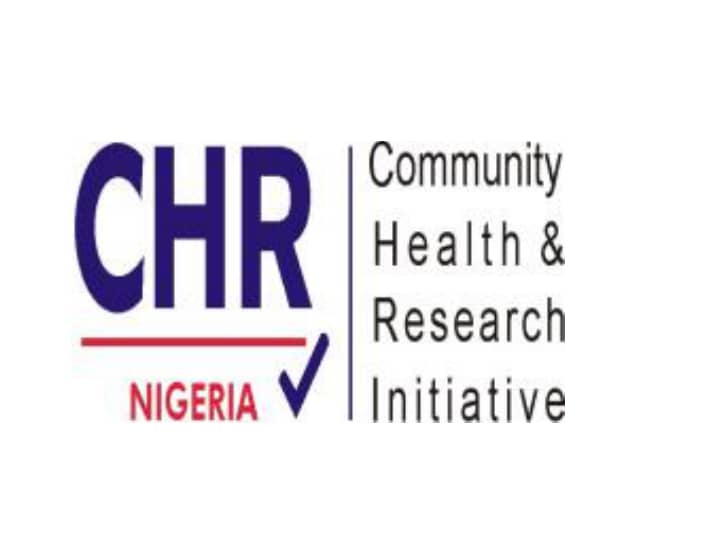As the world marks the International Day Against Drug Abuse and Illicit Trafficking today June 26 2025, the Community Health and Research Initiative (CHR) joins the global community in raising awareness about the growing danger of substance abuse in Nigeria and urging stronger action at all levels of society.
This global observance, established by the United Nations, is aimed at promoting understanding of the dangers of drug use and strengthening efforts toward a drug-free society.
Substance abuse refers to the use of harmful substances like drugs or chemicals in ways that damage a person’s health, behaviour, or everyday life. It includes taking illegal drugs such as cannabis, cocaine, and heroin, or misusing prescription medications like tramadol, codeine syrup, and rohypnol without medical advice. Furthermore, it even includes sniffing of substances such as gasoline, glue, and paint thinners to get high. Drug abuse is a specific form of substance abuse, and both are rising across Nigeria, especially among young people.
These harmful practices don’t just affect the person using them. They often lead to serious health problems like mental illness, organ failure, or even death. They also tear families apart and fuel crimes such as burglary, phone snatching and thuggery, putting the safety and stability of communities at risk.
*WORRYING STATISTICS FROM 2025*
– According to Leadership Newspaper (May 2025), the National Drug Law Enforcement Agency (NDLEA) arrested 4,803 suspects in the first quarter of 2025, compared to 4,329 during the same period last year. The agency also secured 1,056 convictions, a major increase from 330 in 2024.
– In January 2025, 1,610 persons were arrested (1,478 males and 132 females), followed by 1,623 in February (1,449 males and 174 females), and 1,570 in March (1,397 males and 173 females). This totals 4,324 males and 479 females within just three months. NDLEA also seized 138.39kg of cocaine valued at ₦108 billion.
– On May 25, 2025, Vanguard Newspaper reported the interception of six million pills of dangerous opioids such as tramadol 225mg, tapentadol 225mg, and carisoprodol 225mg, along with 332,000 bottles of codeine based syrup. These seizures took place at the Port Harcourt Ports Complex and Apapa Seaport, with a street value of ₦6.52 billion.
– In Kano State, The Guardian Newspaper (April 11, 2025) reported that NDLEA arrested 22 suspects during major operations across hot spots. Another Vanguard report (June 1, 2025) highlighted the arrest of 36 suspects across Kano ahead of the Eid al-Kabir celebration.
*HEALTH AND SOCIAL IMPACT*
Drug abuse causes serious harm to both the body and mind. It can lead to mental illness, liver and kidney failure, heart problems, addiction, and in some cases, death from overdose. Many who survive suffer permanent damage that affects how they think, feel, and function. Some may lose their memory, have trouble focusing, or experience long-term depression and anxiety. The body also becomes weaker over time, and organs may stop working properly, leading to lifelong health challenges.
Socially, the impact is equally alarming. Drug abuse contributes to rising cases of thuggery, phone snatching, burglary, and violence. Many drug users become involved in criminal behaviour, harming others and themselves. These activities create fear, disrupt peace, and make communities unsafe.
*RECOMMENDATIONS: EVERYONE HAS A ROLE TO PLAY*
Fighting substance abuse requires collective efforts. While the NDLEA is making important progress, much more needs to be done by all stakeholders.
– *Stronger government support*
Federal and state governments should increase support for the NDLEA through increased funding, the establishment of more rehabilitation centres, and ongoing public awareness campaigns. Strengthened policies focused on prevention, treatment, and reintegration are urgently needed.
– *Empowering young people*
Young people need real opportunities. Governments, private sector actors, and development partners should invest more in quality education, vocational training, and job creation. When youth have skills and jobs, they are less likely to turn to drugs.
– *Parental involvement*
Parents and guardians must stay actively involved in their children’s lives. Through guidance, support, and close monitoring, they can help prevent early drug use and risky behaviour.
– *Community and religious leaders’ influence*
Religious and traditional leaders have a strong community influence. They should speak more against drug abuse and promote moral values during sermons and community events.
– *Schools and teachers*
Schools should include drug education in the curriculum and create safe spaces for students to ask questions and seek help.
– *Civil society and NGOs*
Civil society organisations and non-governmental organisations should increase their efforts by organising more outreach programs, supporting recovery efforts, and working with youth groups and community leaders to spread accurate information and reduce stigma.
– *Community support and reporting*
All community members must report drug hotspots and suspicious activities to the right authorities. By speaking up, they help protect others and reduce the spread of drugs. Communities should also support people recovering from addiction and avoid isolating or judging them.
*Issued by:*
*Nafisa Shehu Ibrahim*
*Executive Administrator*
*Community Health and Research Initiative (CHR)*





